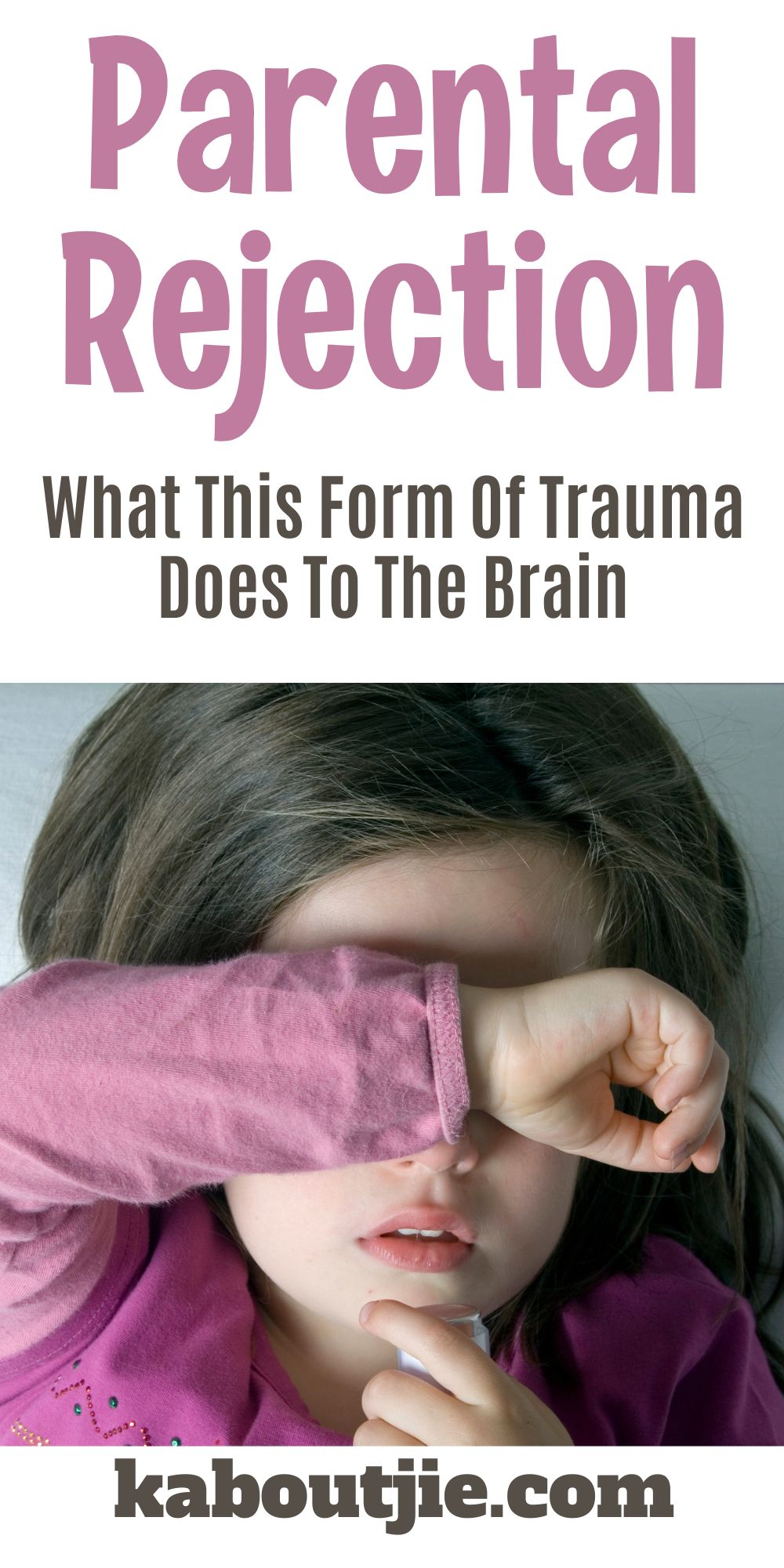Trauma can have a significant impact on the brain, resulting in changes in neural pathways, neurotransmitters, and brain structures. Trauma activates the amygdala, which is the fear centre of the brain, leading to a heightened sense of anxiety and fear. It can also lead to changes in the prefrontal cortex, which is responsible for decision-making, impulse control, and emotion regulation, making it difficult to cope with stress and emotions.

Parental rejection is a form of trauma that can occur when a child feels unwanted, unloved, or dismissed by their caregivers. This experience can be significant in shaping how individuals relate to themselves and others as they grow older, leading to difficulty with attachment, trust, and self-esteem. Moreover, research has shown that parental rejection is linked to anxiety, depression, and emotional distress in adulthood, highlighting the long-lasting impact of trauma!
Trauma can have a profound effect on the brain, and parental rejection can be a form of trauma that can have long-lasting consequences. Understanding the impact of trauma and seeking support and treatment can help individuals heal and move forward. Parental rejection can have long-lasting effects on a person’s mental health and wellbeing. When a parent refuses to accept or acknowledge their child, it can cause deep emotional trauma and can shape a person’s beliefs about themselves and the world around them.
Children develop their sense of self-worth and identity from the feedback they receive from their parents. When a parent rejects their child, it can lead to feelings of inadequacy and low self-esteem. These negative beliefs can carry into adulthood and affect how a person views themselves and their relationships.

The trauma of parental rejection can also have physical effects on the brain. Research has shown that the amygdala, the part of the brain responsible for processing emotional stimuli, can become overactive in response to stress and emotional pain. This can lead to anxiety and other mental health issues.
Neurofeedback therapy, which has proven highly effective in treating trauma responses, is a non-invasive treatment that can help individuals overcome the effects of parental rejection. This therapy involves using EEG sensors to monitor brain activity and providing feedback that helps the brain regulate itself more effectively. With regular sessions, neurofeedback can help reduce anxiety, improve sleep and restore emotional balance.”
Through neurofeedback, individuals can learn to retrain their brain’s response to stress and emotional pain. This therapy can also help individuals develop more positive beliefs about themselves and their relationships, leading to greater self-confidence and a more fulfilling life.
In conclusion, parental rejection can have deep and lasting effects on a person’s mental health and wellbeing. Through neurofeedback therapy, individuals can learn to overcome these effects and develop positive beliefs about themselves and their relationships. If you have experienced parental rejection, seeking out neurofeedback therapy can be an effective way to heal and move forward.
For more information about Neurofeedback and brain training please visit https://www.brainharmonics.co.za/

By Kerry Rudman from Brain Harmonics , a Neurofeedback organisation specialising in retraining brains.
 Kaboutjie SA Mommy Blogs by Lynne Huysamen
Kaboutjie SA Mommy Blogs by Lynne Huysamen





Very important information. It is important that we as parents give our children our undivided attention.
It’s so true, I’m 31 years old and there are still things I remember from my child hood that hurt really bad. My mom and I do not have a great relationship, which left me feeling rejected, and everyday I pray that I never do this to any of my kiddos
Reading this made me realized alot and relate to certain question i had recently been thank u for this article